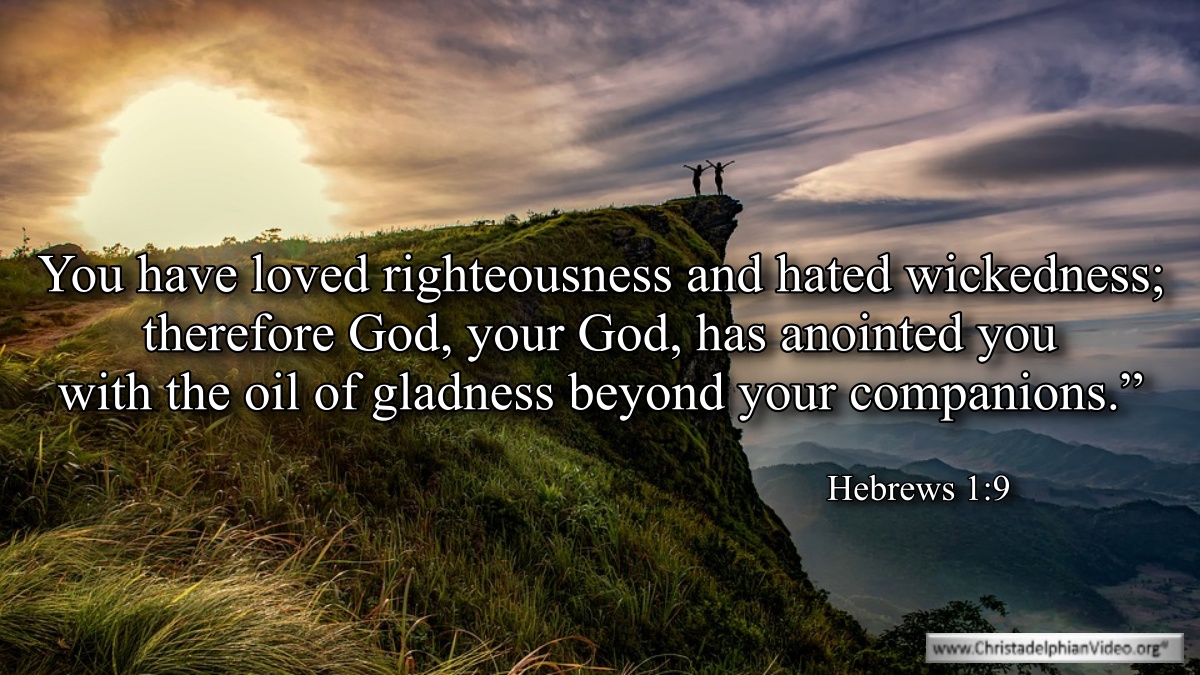
Todays readings.. Esther 5&6, Amos 9, Hebrews 1&2
Today we start reading Hebrews; much of this letter is a remarkable testimony to what Jesus achieved. It prevents any impression some might have that the work of Jesus was, sort of automatic, in fulfilling God’s will. Having previously spoken “by the prophets” [1 v.1] God “has now spoken to us by his Son whom he appointed heir of all things” [v.2]
A comparison is made between the work of Jesus and the angels. We read how when Jesus completed his work for God on earth, “he sat down at the right hand of the majesty on high, having become as much superior to angels as the name he has inherited is more excellent than theirs” [v.4]. There follows some comparisons of Jesus with the angels. The first is, “to which of the angels did God ever say, ‘You are my Son, today I have begotten you’? Or again, I will be to him a father and he shall be to me a son’?” [v.5]
We learn that Jesus was “begotten” – he had a beginning – creating a father and son relationship. Verses 8 and 9 are a very informative quotation from Psalm 45 v.6,7. “But of the Son he (i.e. God) says, ‘Your throne O God, is forever and ever, the sceptre of uprightness is the sceptre of your kingdom. You have loved righteousness and hated wickedness; therefore God, your God, has anointed you with the oil of gladness beyond your companions.” This is the only passage where God refers to His begotten Son as “God” – but we must note that it then goes on to say, “therefore God, your God has …”
The co-equal, co-eternal” perceptions of Jesus were inventions of human minds centuries later. Now notice that the exaltation of Jesus was because “you have loved righteousness and hated wickedness”.
` Only Jesus succeeded in achieving that completely, but he set the example of the quality of mind those who follow him must aim to develop – that it should be said of them that “you have loved righteousness and hated wickedness” – What do we love? What do we hate? Let us examine our hearts for a genuine, a true answer!





